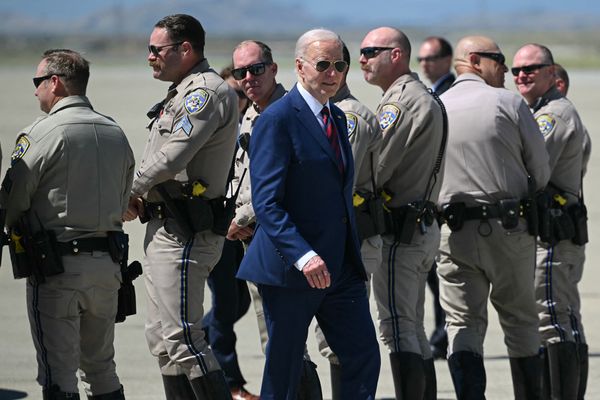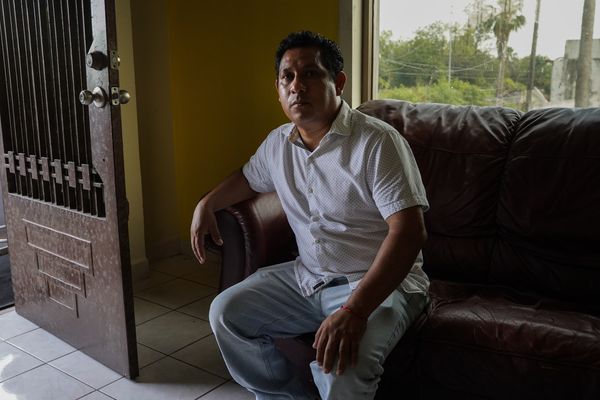
The New Zealand pilot kidnapped by independence fighters in Indonesia’s restive easternmost province of Papua is now living in the jungle with the separatist fighters and eating what they eat, a separatist has told Crikey.
Independence fighters from the West Papua National Liberation Army (TPNPB) seized Susi Air’s small propeller plane when it landed at an airport in the mountainous district of Nduga last week. The separatists, from the armed wing of the Free Papua Organisation (OPM), set the plane on fire and captured the pilot, Philip Mehrtens, who was then spirited away to a hiding place somewhere in the dense jungle of the area.
“He stays in the jungle, he eats in the jungle,” said the army’s spokesman Sebby Sambom, adding that many Western missionaries had been able to adjust to Papuan food in the past.
“If the TPNPB troops eat potatoes, the pilot also eats potatoes.”
Mehrtens can easily communicate with his captors, Sambom said: “This New Zealand pilot can speak Indonesian and for him this action is normal.”
TPNPB independence fighters want to negotiate with the governments of the US, Europe, Australia and New Zealand, Sambom told Crikey in a WhatsApp voice message recorded in Indonesian.
“We arrested that pilot depending on politics. We want to negotiate with the governments of New Zealand, the US, Australia, Europe and the people,” he said.
He added that these nations had been sending weapons to Indonesia and training Indonesian police and military troops for decades, and that those Indonesian forces kill the people of West Papua.
“We do not need to negotiate with the Indonesian army or the police,” Sambom said. “What is the goal of those military and police? They are the enemy, it’s not possible. We cannot speak with the army or the police, they are accountable to Jakarta.”
The TPNPB separatist fighters this week posted photos on Facebook and released videos showing Mehrtens in the jungle, surrounded by several men, a few armed with semi-automatic weapons and others with bows and arrows.
In one video, an independence fighter is seen in the cockpit of the Susi Air plane before it was set alight.
In another video, Mehrtens is wearing what appears to be a “Free Papua” T-shirt and appears well and calm. He speaks first in Indonesian and then in English.
“The Papuan military have taken me captive in their efforts to fight for Papuan independence,” he says. “They ask for the Indonesian military to go home, back to Indonesia. If not, I will remain captive or my life is threatened.”
Sambom sent the videos and images to Crikey and said Mehrtens was not taken hostage as an enemy but as a representative of the Pacific Nations family, including New Zealand and West Papua. He claimed that 80% of Australians and New Zealanders support West Papua’s struggle for independence.
Meanwhile, dozens of heavily armed and helmeted Indonesian police and military officers have arrived in the rugged hills of Nduga to search for Mehrtens, according to the Indonesian press.
Despite using often heavy-handed tactics, Indonesia’s large military forces have failed to stamp out elements of determined resistance in West Papua over the years, and Jakarta’s bid to subdue the province by shipping in large numbers of non-Indigenous Indonesians has bred entrenched resentment.
Indigenous Papuans are mostly Melanesian and Christian, unlike the racially different Muslim newcomers, many from Java and Madura, who now outnumber locals in many districts.
West Papua has seen sporadic conflict for many decades. Most of Indonesia achieved independence when the Dutch colonisers departed soon after World War II. But West Papua, which abuts Papua New Guinea, remained Dutch until the early 1960s. After a struggle, authority for the province was transferred to Indonesia, which promised an “Act of Free Choice” — a UN-supervised ballot on independence.
In 1969, just over 1000 Papuans selected by Jakarta voted to keep the province within Indonesia. The vote was accepted by much of the world, but it is disputed by many indigenous Papuans who continue to insist on independence.






